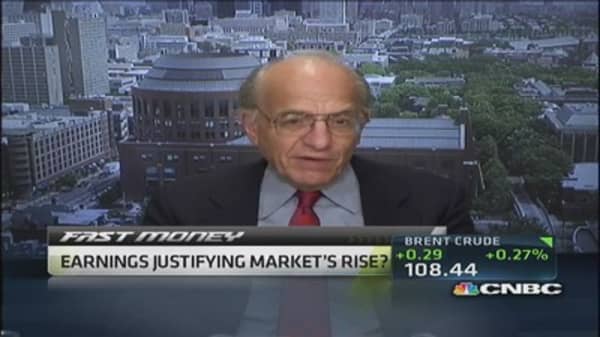The S&P 500 jumped to a record high last week as a solid, but a not super jobs report gave professional investors the impression that the Fed could hold off from dialing back bond buying (QE3) in September/October. Or at the very least, according to their thinking, the economy is now strong enough to handle it.
TD uses a formula for its index that weighs active traders more than less frequent buyers and sellers among its 6 million funded accounts. The firm releases this unprecedented look into client activity in an effort to create a sentiment reading that is more of a leading indicator, rather than a contrarian "dumb money" measure which many on Wall Street feel retail sentiment indicators have become.
(Read more: Jeremy Siegel expects bullish earnings growth)
This profit-taking behavior at record highs is not what you've typically seen from the retail investors, often referred to as the uninformed herd on Wall Street. These moves are more akin to leading hedge fund manager Daniel Loeb, who took profits in his winning Yahoo position last month despite many of the catalysts he cited for buying the stock not yet coming to fruition.
TD Ameritrade clients also heavily sold fixed-income mutual funds and bond exchange-traded funds as U.S. Treasury yields shot higher. Other stocks they sold included Baidu and EMC.
The investors bought into blue-chip names that dipped after earnings, including Coca-Cola, Boeing and AT&T. They still remain fans of Apple, Tesla and Facebook.
(Read more: Should you factor the taper into your trades?)
Besides that negative reading back during an uncertain January, the so-called IMX Index plumbed the 4 level during the summer of 2012, which was plagued by worries about the so-called fiscal cliff and an unstable Europe. Dysfunction in Washington and Europe are often mentioned by pundits as additional reasons to be negative for this year's second half.
Still, TD Ameritrade's peek at client activity raises the question: If the market is going to continue to march higher, can it do it without the retail investor participating?
—CNBC's John Melloy.





